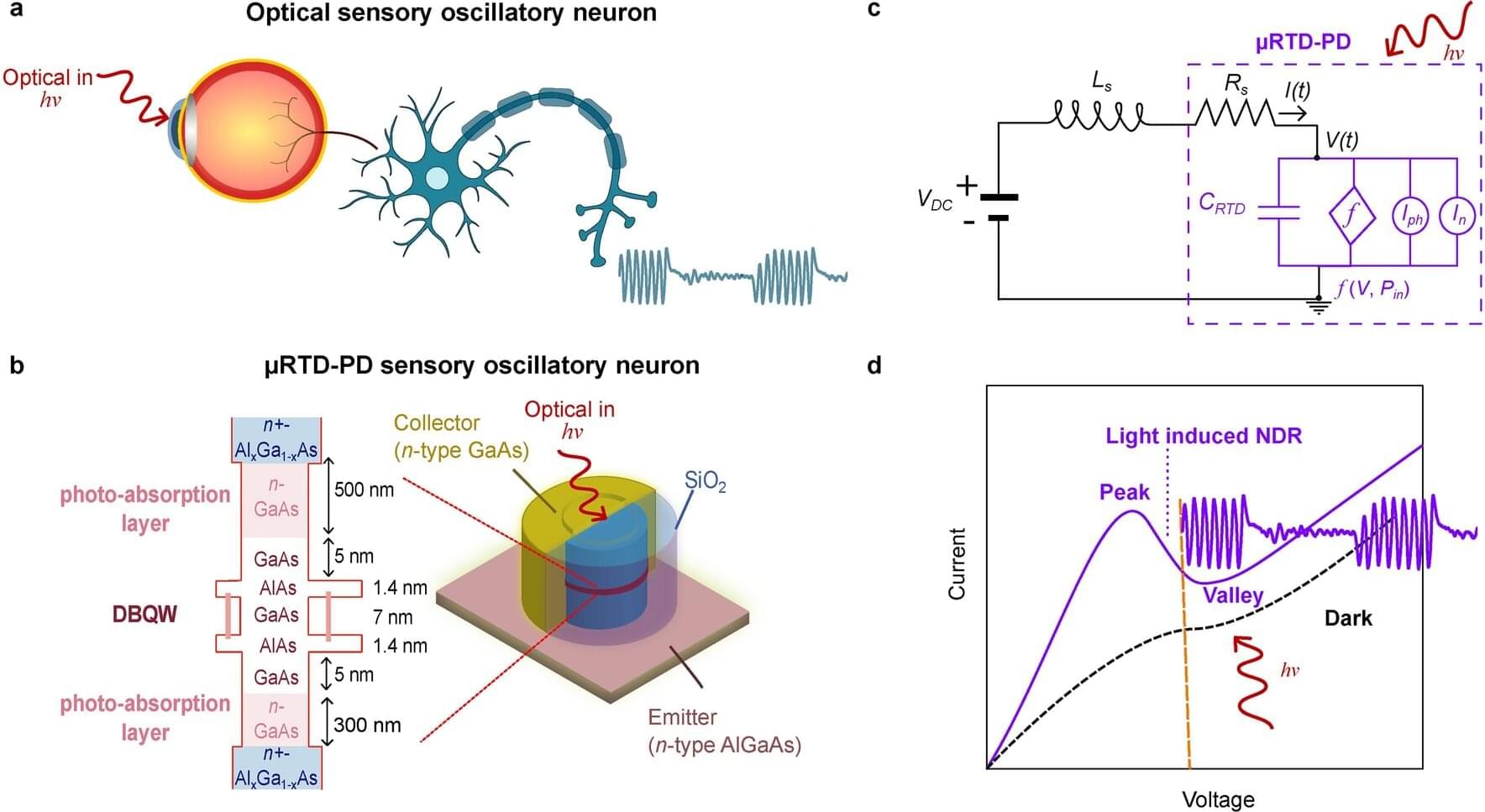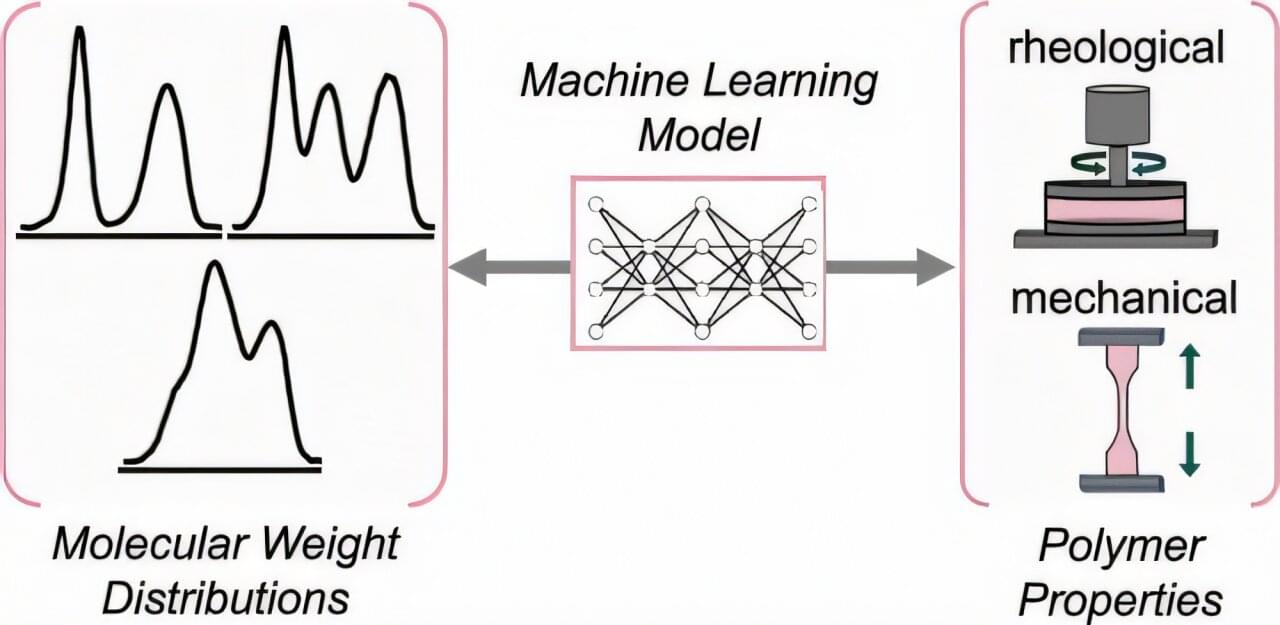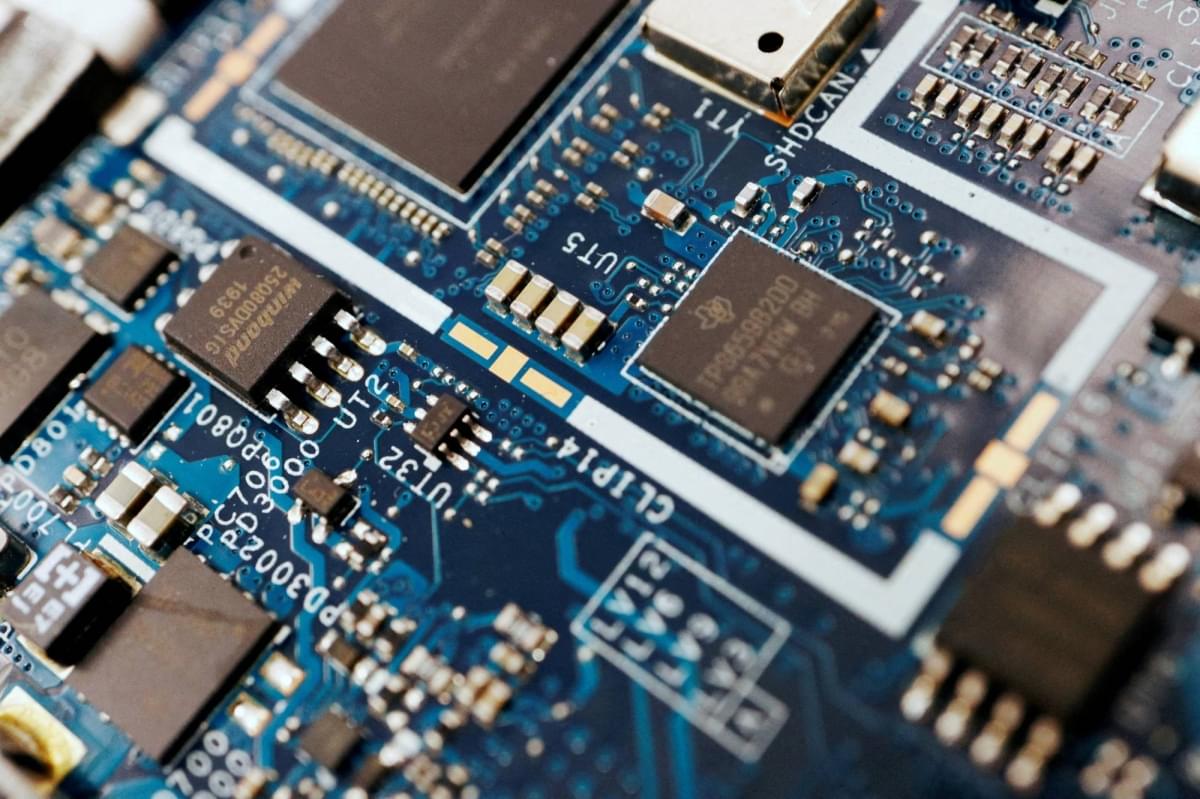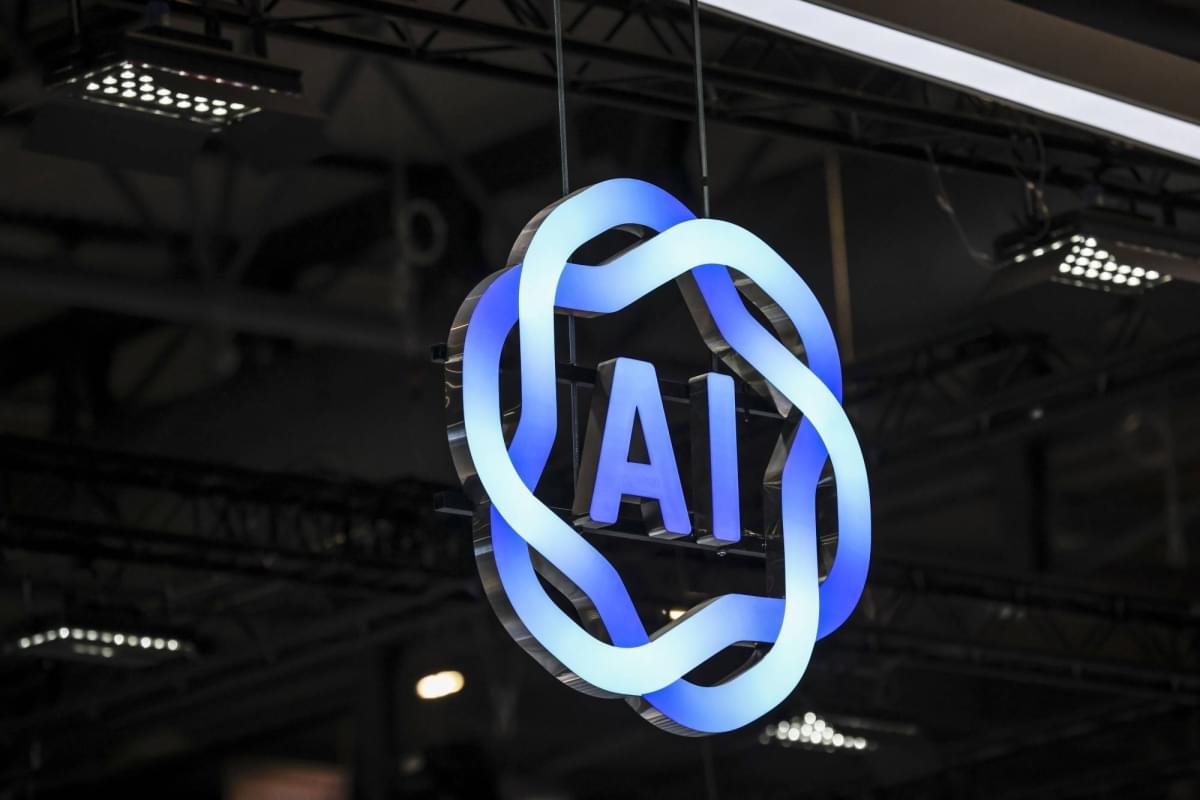International Iberian Nanotechnology Laboratory (INL) researchers have developed a neuromorphic photonic semiconductor neuron capable of processing optical information through self-sustained oscillations. Exploring the use of light to control negative differential resistance (NDR) in a micropillar quantum resonant tunneling diode (RTD), the research indicates that this approach could lead to highly efficient light-driven neuromorphic computing systems.
Neuromorphic computing seeks to replicate the information-processing capabilities of biological neural networks. Neurons in biological systems rely on rhythmic burst firing for sensory encoding, pattern recognition, and network synchronization, functions that depend on oscillatory activity for signal transmission and processing.
Existing neuromorphic approaches replicate these processes using electrical, mechanical, or thermal stimuli, but optical-based systems offer advantages in speed, energy efficiency, and miniaturization. While previous research has demonstrated photonic synapses and artificial afferent nerves, these implementations require additional circuits that increase power consumption and complexity.








